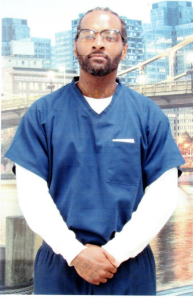Tubbs v. Payton
The Michigan Department of Corrections (MDOC) prevented Danyale Tubbs from accessing a rehabilitative self-help book authored by his sister because her narrative included a brief, non-explicit mention of her being sexually assaulted as a child. The MacArthur Justice Center is fighting to ensure sweeping prison policies, such as MDOC’s, do not violate prisoners’ First and Fourteenth Amendment rights to receive reading materials that are not harmful or threatening and, therefore, are unreasonable for prisons to censor.
 Mr. Tubbs ordered a self-help book authored by his sister for survivors of childhood sexual abuse from an approved vendor. The book, titled Future Fox Teach-Her, references the authors’ personal experiences as a child enduring abuse but does not explicitly describe or promote the abuse. Instead, the author’s experience validates childhood sexual abuse survivors’ trauma through the author’s narrative. The facilities’ mail clerk withheld the book on the erroneous basis that it contained, encouraged, or provided instruction for criminal activity; interfered with rehabilitation; and threatened security.
Mr. Tubbs ordered a self-help book authored by his sister for survivors of childhood sexual abuse from an approved vendor. The book, titled Future Fox Teach-Her, references the authors’ personal experiences as a child enduring abuse but does not explicitly describe or promote the abuse. Instead, the author’s experience validates childhood sexual abuse survivors’ trauma through the author’s narrative. The facilities’ mail clerk withheld the book on the erroneous basis that it contained, encouraged, or provided instruction for criminal activity; interfered with rehabilitation; and threatened security.
After receiving notice that the book was withheld, Mr. Tubbs requested an administrative hearing inside the prison to appeal the decision. At that hearing, the prison counselor assigned to serve as the judge decided that Mr. Tubbs should have received the book because it did not encourage crime or threaten security or rehabilitation. Unfortunately, in a second hearing, the counselor determined that the book had to be withheld, even though it did not undermine safety or rehabilitation, because it violated a strict ban on mail describing sexual acts involving children.
Mr. Tubbs filed a pro se suit – meaning he represented himself – to challenge this decision in federal court. He alleged the mail clerk violated his First and Fourteenth Amendment rights by using an unreasonably overly broad policy to deny him access to a book centered on healing from trauma. However, the district court dismissed Mr. Tubbs’ complaint for failure to state a claim – which means that the judge thought that, even if everything Mr. Tubbs said was true, the prison had not broken the law. That decision was wrong.
The MacArthur Justice Center represents Mr. Tubbs in his appeal to the Sixth Circuit.
UPDATE
In November 2023, the U.S. Court of Appeals for the Sixth Circuit sided with Mr. Tubbs and remanded his case back to the district court for further proceedings. In an unanimous, unpublished opinion, the Sixth Circuit found that the district court erroneously dismissed Mr. Tubbs’ civil rights complaint based upon incorrect assumptions about some claims and by failing to address other claims brought by Mr. Tubbs. This case continues in the U.S. District Court for the Western District of Michigan, where Mr. Tubbs is represented by pro bono counsel from Goodwin Proctor, LLP.
Sixth Circuit
For media inquires please contact:
(NOTE: This mailbox is for media inquiries only. All other inquiries, including legal and representation questions, should be submitted through our Contact Form.)
